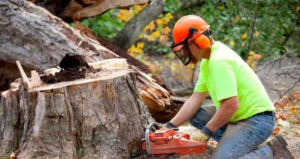Car accidents are complex, and an experienced attorney is a must for getting the compensation you need. A good lawyer can also explain the legal process in a way that is easy to understand.
When determining your damages, an attorney considers all ways the crash has affected you—from current and future medical treatment to lost wages and emotional trauma. They will also investigate the incident, including hidden crash causes. Click the Best Accident Lawyer In Maryland to know more.

An experienced car accident lawyer acts as a mediator between victims and insurance companies. They have in-depth knowledge of New York law, including the statute of limitations, and insurance coverage nuances that make them well-positioned to negotiate a fair deal. Additionally, they know how to recognize and counter insurer tactics, such as stalling, undervaluing, or rejecting claims.
Additionally, they work to build a strong case for their clients by reviewing medical records, investigating the scene of the crash, and collaborating with experts. They consider all the ways that an accident has affected a client’s life, such as current and future medical treatment costs, lost wages, and emotional impact.
They also understand how to calculate the full extent of a client’s losses, including their pain and suffering. This allows them to obtain maximum compensation for their clients. Additionally, they have a deep understanding of the laws and procedures governing car accidents, which is important to ensuring that legal documents are filed correctly and within deadlines.
Another aspect of their job is to ascertain the liability of at-fault parties. This involves examining police reports, witness statements, medical bills and records, employment and lost wage information, and analyzing the accident scene. They can determine whether there is clear evidence of negligence or fault on the part of a party involved in an accident and help their clients pursue appropriate compensation.
A good accident lawyer can handle all aspects of a legal claim, saving their clients time and stress and contributing to a more efficient resolution. They can educate their clients on their rights, advise them on the best course of action, and defend them against parties that seek to take advantage of their unfamiliarity with the law.
Additionally, they are familiar with the complexities of insurance procedures and laws, as well as the various forms that must be filled out for different types of car accidents. They can also advise their clients on time limits (called statutes of limitations) for filing a lawsuit against the at-fault party. This is important as many cases must be filed within a certain period of time or they are barred from filing.
Reputation
Car accidents are one of the most common causes of serious injury and death in the United States. If you have been injured in a car accident, it is important to contact an experienced and qualified attorney immediately. A lawyer can help you file a lawsuit against the negligent party and negotiate a fair settlement. A reputable lawyer will evaluate your injuries, expenses, and other losses and determine what compensation you may be entitled to receive. They will also assist you in navigating the complexities of filing a lawsuit and other procedural rules that may affect your claim.
The right attorney will have a solid understanding of the complexities involved in a car accident case and have a proven track record of success. When choosing a lawyer, consider their track record, expertise in car accident law, and resources to handle your case. In addition, be sure to ask about their availability and how many cases they are handling at a time. You should also look at how they charge their fees, including whether they work on a contingency basis or by the hour.
An experienced car accident attorney will work tirelessly to ensure that their clients receive the financial resources they need to recover from their injuries and cover related expenses. They will assess damages, negotiate with insurance companies, and pursue additional sources of compensation to maximize the amount they can win for their clients. They will not settle for an offer that does not adequately compensate their client for the harm they have suffered.
A good car accident attorney will be familiar with the ins and outs of New York’s No-Fault laws, which limit recovery of certain types of losses and may impact the validity of your claim. They will review police reports and other documentation, interview witnesses, and work with medical experts to establish a link between the defendant’s actions and your injuries. They will also carefully examine the insurance policies of both parties, assessing the adequacy of coverage to meet your potential damages.
A competent car accident attorney will provide peace of mind and allow you to focus on your health. They will take care of every aspect of your case, from obtaining medical records to communicating with the insurance company on your behalf. They will also be your advocate, fighting for you when dealing with uncooperative or aggressive insurance companies.
Accessibility
Whether you’ve suffered minor injuries or lost a loved one in a traumatic accident, pursuing compensation is a complex process that requires legal expertise. Working with an Accident Lawyer ensures your legal rights are protected and allows you to focus on recovery without the burden of navigating the legal system alone.
A car accident attorney can help you obtain the money you need to cover medical expenses, future lost income, mental anguish, and other damages. They’ll also negotiate with insurance companies to ensure you’re receiving the maximum possible settlement for your case.
It’s important to find an attorney that is willing to listen and address your questions and concerns. An experienced attorney can explain how the law applies to your situation and provide insights that you may not have considered. It’s best to choose an attorney who offers in-person consultations, but if this is not an option, consider remote communication options.
Accident attorneys also have a finger on the pulse of local traffic patterns and road conditions, which are invaluable for investigating your accident and determining liability. In addition, they’ll be familiar with time limits (called statutes of limitations) that might bar you from filing a lawsuit against the at-fault party.
Many car accidents involve multiple parties, and assigning blame isn’t always clear-cut. An experienced car accident attorney can review the facts of your case and identify all possible sources of financial recovery, including non-driver-related factors such as vehicle defects, roadway design, and product liability. They’ll also assess the impact of comparative negligence laws on your potential compensation.
Choosing the right car accident attorney can be overwhelming, but it’s essential to your financial well-being. Having an attorney on your side can make the difference between winning and losing in an insurance negotiation or jury trial. It’s also important to hire an attorney that works on a contingency fee basis, which means you pay them only if you win your case. This helps you avoid the financial risk of hiring an attorney with little experience or a large billboard in your town. It also gives you peace of mind knowing that your attorney is focusing on a successful outcome to your case.
Strategy
Obtaining compensation after a car accident requires a comprehensive legal strategy that aims to maximize your recovery. A good attorney will take on all the work required to pursue your claim, from investigating the crash and gathering evidence to negotiating with insurers and filing claims. They will even be willing to take your case all the way to trial if necessary.
Insurance companies use tactics to persuade unrepresented accident victims to accept a lower settlement than they are entitled to. A claims adjuster will often seem sympathetic and friendly, but their primary objective is to save their company money by paying as little as possible. An experienced attorney will be aware of these strategies and know how to counter them to ensure you receive the full amount of your claim.
A qualified accident lawyer will also evaluate the potential for a fair settlement by examining the insurance coverage and liability of the at-fault party. They will consider the adequacy of policy limits to cover the victim’s losses, the proximate cause of injuries, and other relevant facts and circumstances. They may also assess the impact of comparative negligence laws on potential damages.
When they have a clear picture of your injuries and other losses, an accident lawyer will send a demand letter to the at-fault party or their insurance company. This letter will explain your injuries and how they have impacted your life. It will also highlight any evidence that bolsters your case.
Most cases settle out of court, but some do not. An experienced attorney will have a track record of taking cases to trial and winning verdicts. They will be able to demonstrate their ability to stand up against the insurance companies and make them pay you what you deserve.
An effective car accident lawyer will be able to build a community around their practice by sharing client success stories (with permission) and posting informative content about personal injury law. They should also participate in relevant online groups and forums to increase their brand awareness and establish themselves as an authority on personal injury matters.



